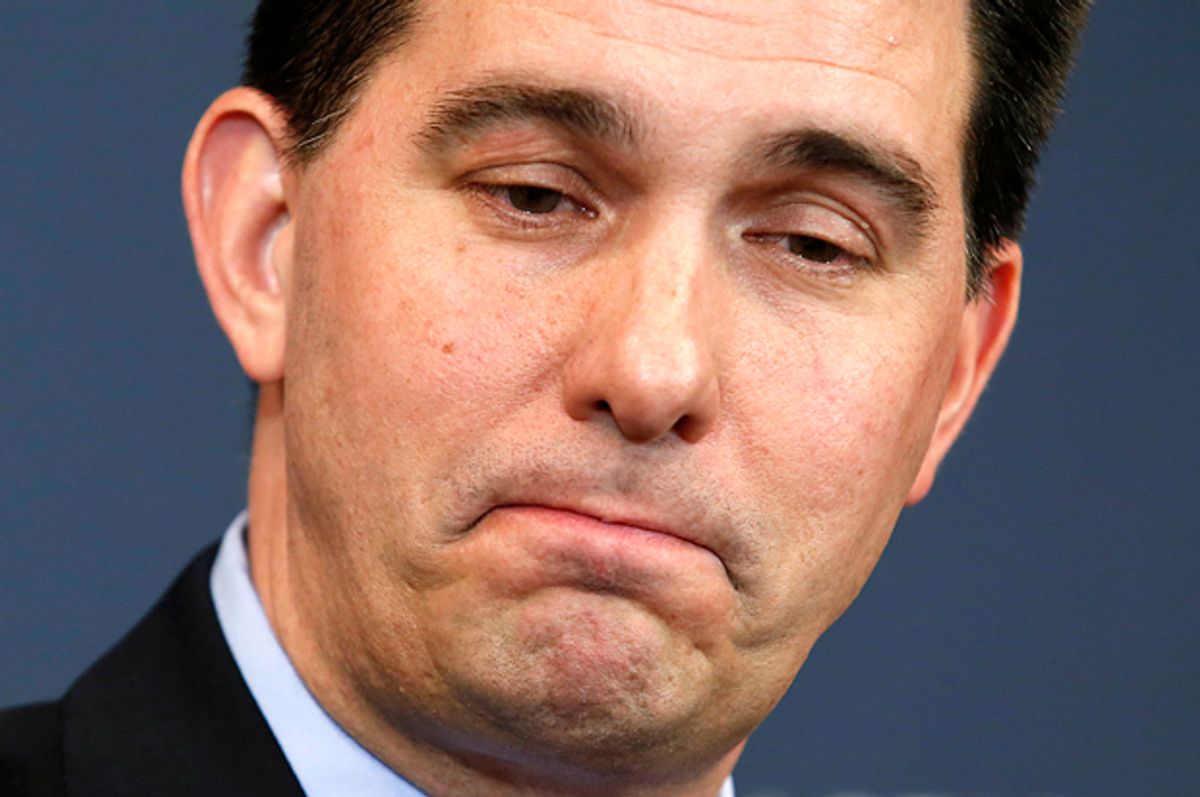News broke this morning that finally, after many long years of sanctions and many long months of delicate negotiations, the Obama administration and it allies finally ceded the Sudetenland to Hitler. That’s how conservatives have been framing the multilateral diplomatic rapprochement over limiting Iran’s nuclear program, and the announcement earlier today that a deal had been reached between Iran and the so-called P5+1 nations – the U.S., Great Britain, France, Russia, China, and Germany – sent the right into escalating fits of outrage. This reaction fit in seamlessly with the longstanding conservative opposition to any sort of diplomatic outreach with our adversaries, which they believe betrays weakness and an unwillingness to bring the world around to our agenda through the use of force.
You can see that belief playing out in the reactions of the Republican presidential candidates, pretty much all of whom are using the Iran deal to put on a show of “strength” and promise to take a hardline stance against Iran should they become president. (Mike Huckabee all but promised to invade Iran and overthrow the government.) And to make clear just how opposed they are to diplomacy, several have vowed to unilaterally back out of the existing diplomatic framework as soon as they’re sworn into office.
Scott Walker, for example, made that pledge during his remarks announcing his candidacy last night. And he repeated it a few hours later when he sat down for an “interview” with an embarrassingly sycophantic Sean Hannity.
Here's the transcript of what Walker said:
WALKER: As president, on my very first day going forward, I would pull back, I would terminate that bad deal with Iran completely on day one. I would then put in place crippling economic sanctions against Iran, and I’d convince our allies to do the same. This is not a country we should be doing business with.
This is actually an elaboration of Walker’s previous stance on the Iran deal. When asked a few months ago if he’d back out of the Iran deal even if our allies were not willing to put sanctions back in place, Walker was unequivocal: “Absolutely.” Now he’s saying he’d back out and impose “crippling sanctions,” and then he would get busy sweet-talking the allies he’d just completely betrayed to get on board with his plan.
This is silly. Sanctions don’t work this way. They won’t be “crippling” until you actually get other countries to sign on to them. If the U.S. alone could “cripple” Iran with sanctions, we wouldn’t need our allies to get on board. Would-be president Walker’s Iran policy aims are completely backwards.
More to the point, Walker seems to think that the U.S. will have the standing and credibility to assemble a multilateral sanctions regime against Iran immediately after he unilaterally detonates the diplomatic framework that our allies have painstakingly worked on for so long. The sanctions that finally ended up bringing Iran to the negotiating table took decades to put in place. It required herculean diplomatic efforts spanning multiple administrations – helped along by provocative and aggressive behaviors by Iran – to convince European countries to get with the program. That cooperation was necessary because, as the Brookings Institution points out, “so long as the Iran sanctions regime remained primarily a unilateral American construct, its effects were limited and tolerable for Iran.”
But Scott Walker is promising to replicate this success after having broken faith with all the partners he’d need. He won’t even be able to blame Iran for breaking the deal – it’ll be all on him. And he’d be handing Iran a ready-made excuse to plow ahead with nuclear weapons development. The Scott Walker foreign policy accomplishes the remarkable feat of making the United States the bad-faith actor in a dispute with Iran.

Shares